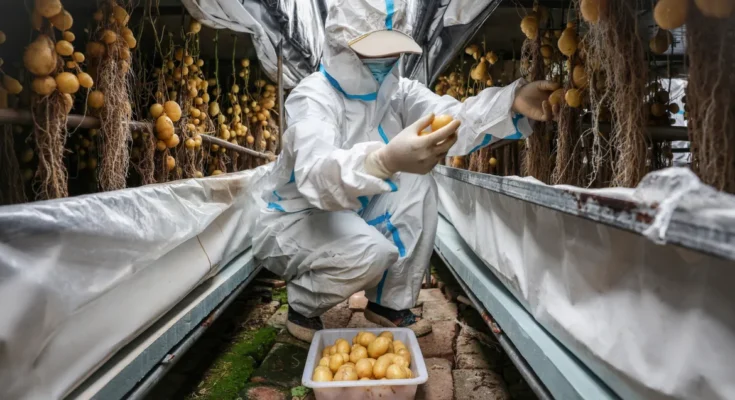which are very critical for global food security. However, it is one of the most vulnerable crops to climate change, which is said to change temperatures, fostering diseases and blight diseases.
So, molecular biologist Li Jieping and his researchers, harvest a potted plant in a research facility in northwestern Beijing where they have discovered a pack of seven suspiciously small potatoes, one the size of a quail egg.
These potatoes, grown under predicted higher temperatures typical of the end of the century, culminate to signify another dark omen for future food security.
This tuber weighs only 136 gm (4.8 oz) or less than half the average weight a potato would have in China, a country where the most favorite varieties tend to be twice as large as a baseball.
China has reserved for itself the status of world’s largest producer of potatoes. Considering the production capacity from this crop compared to the average global yield for-the-highest staple yields, potatoes become crucial for the world’s food security.
But the meagre limit is under the fury of heat; the excess heat adds to the drought and flooding conditions that the climate change is gradually creating in dangerous proportions.
With Li looking for timely performance in food protection, the researcher from the International Potato Center (CIP) in Beijing is studying how high temperatures affect the vegetable within three years. These tenders concentrate on the two most prevalent varieties in China.



